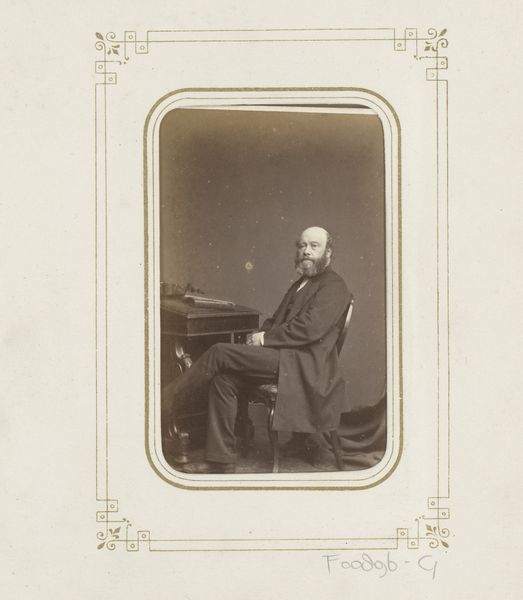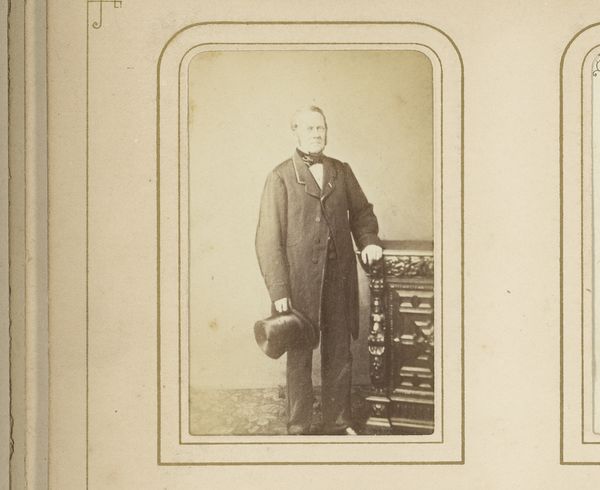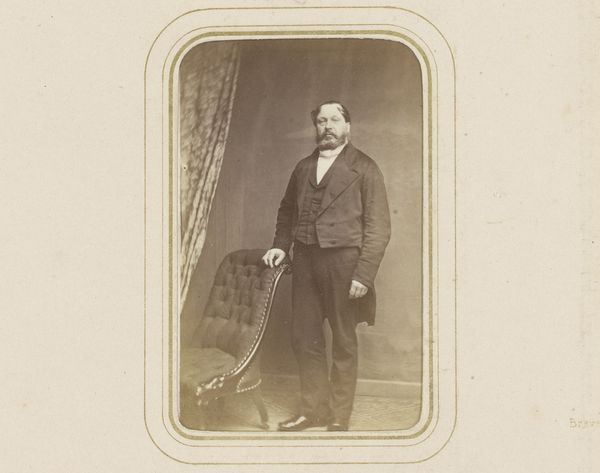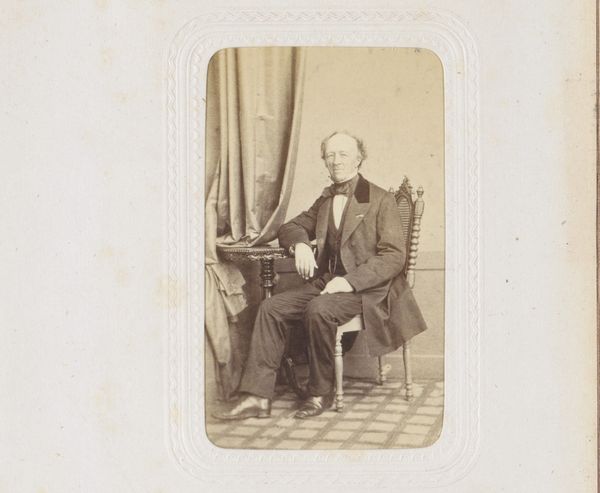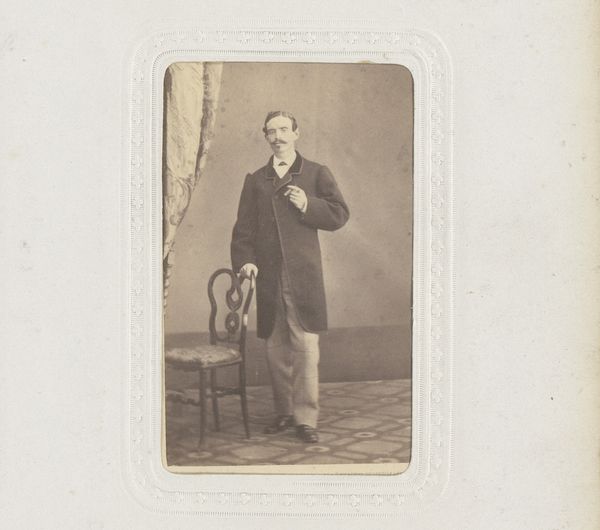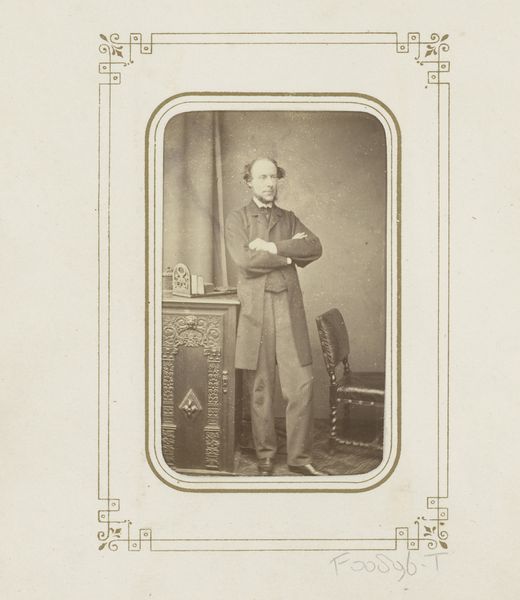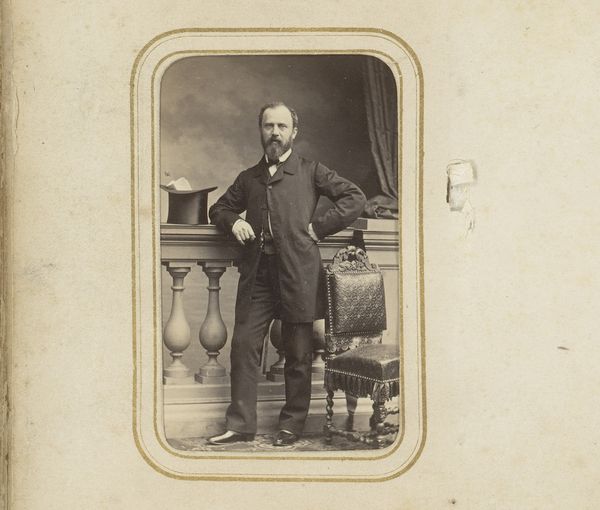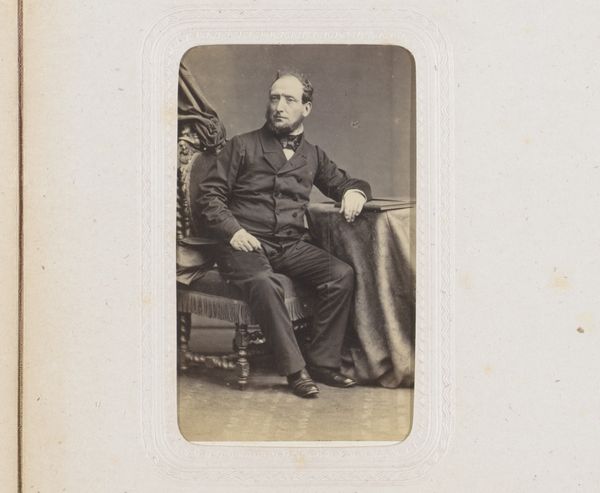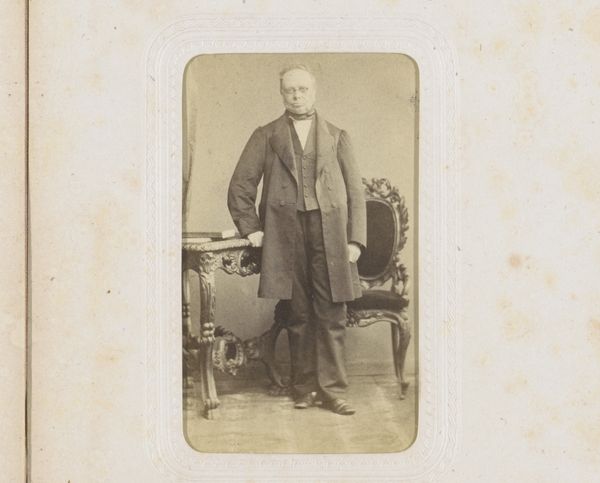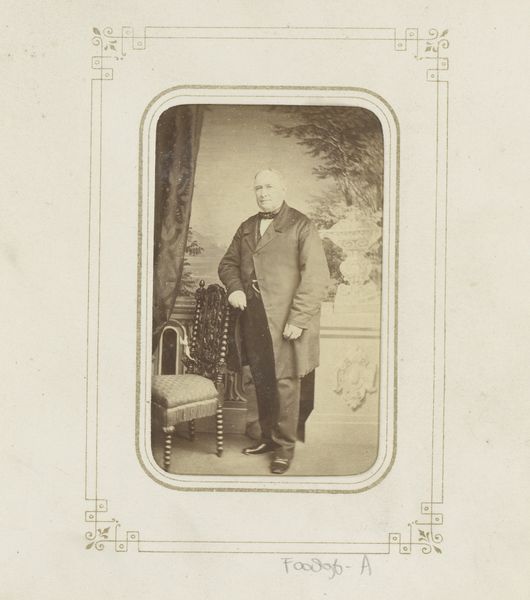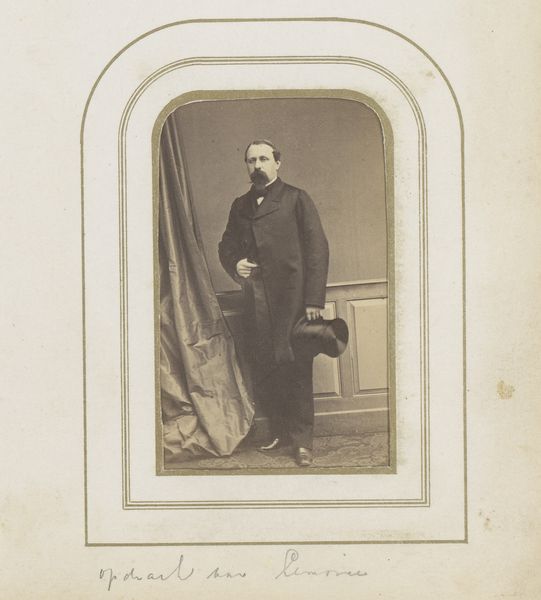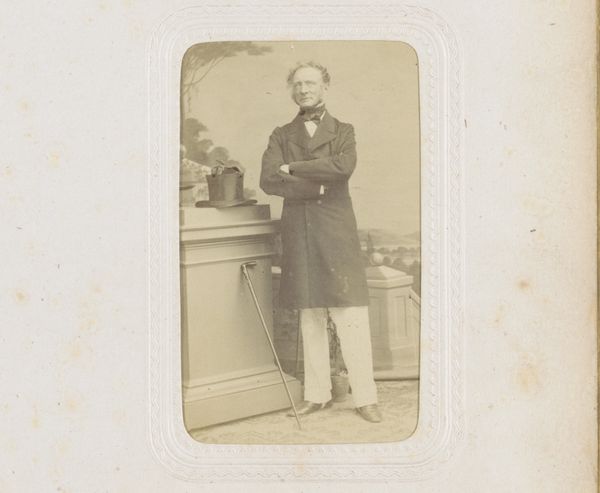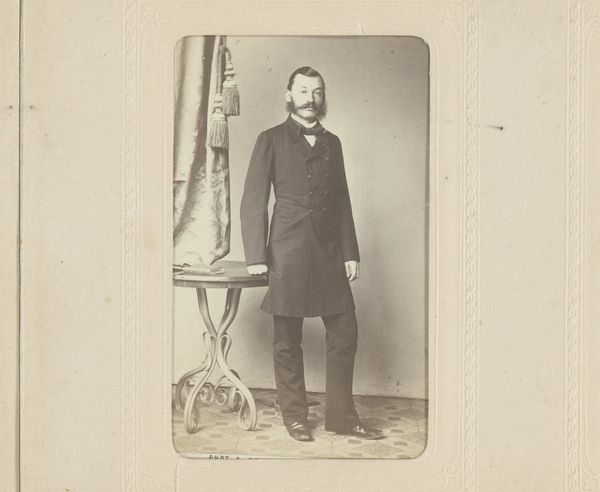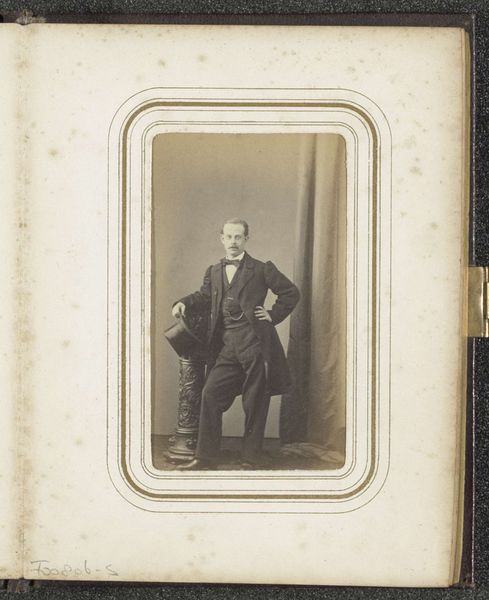
#
aged paper
#
vintage
#
yellowing background
#
photo restoration
#
colourisation
#
archive photography
#
historical photography
#
old-timey
#
yellow element
#
19th century
Dimensions: height 84 mm, width 53 mm
Copyright: Rijks Museum: Open Domain
Editor: This striking photograph, “Portrait of a man with beard, standing by a column,” attributed to Robertson & Co. and dating from the late 19th century, has such a stately feel. What do you make of its historical context? Curator: It's fascinating how these photographic portraits from the 1860s to 1900s were carefully constructed to convey social standing. Notice how the man isn’t just standing, but posed – leaning against a column, suggesting status, knowledge, and connection to classical ideals. Editor: That's interesting, like he's trying to communicate something beyond just a likeness. Do you think the setting adds to this at all? Curator: Absolutely. The column itself acts as a prop, carefully chosen. In the 19th century, photography studios presented themselves as spaces of artistic and social elevation. And it speaks to photography becoming more accessible, right? Who do you imagine was consuming this image, and where might they have seen it? Editor: I suppose this would be shown in parlors, and family albums, or perhaps traded as a calling card between acquaintances. What is particularly intriguing is the photograph being a restored and colorized archive image, in a sense revitalizing the person represented. Curator: Exactly! It highlights how we continue to engage with and reinterpret the past through visual culture. Does the colourisation process impact your understanding? Editor: Definitely. It blurs the lines between historical document and contemporary interpretation, prompting us to question how our present influences our understanding of the past. Thanks. This definitely broadens my perception. Curator: Likewise. Considering the public life of images gives us valuable insights into not just art, but the wider socio-political landscape.
Comments
No comments
Be the first to comment and join the conversation on the ultimate creative platform.
